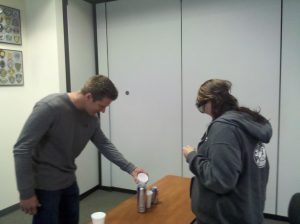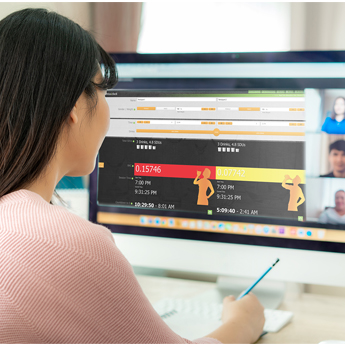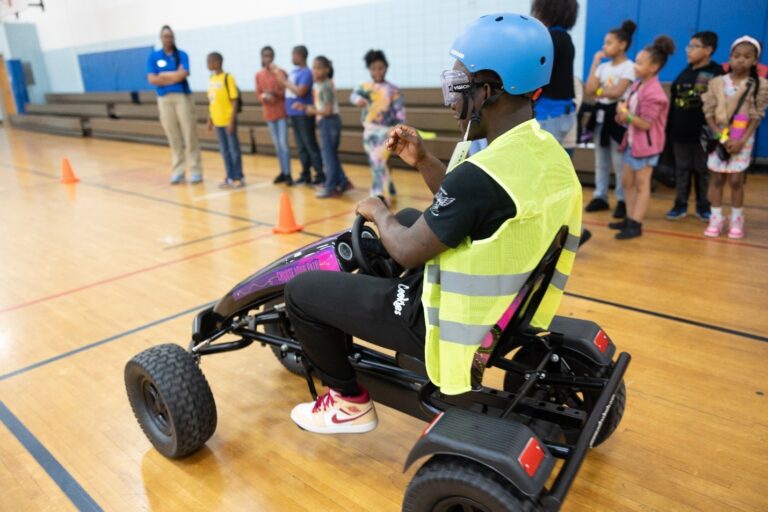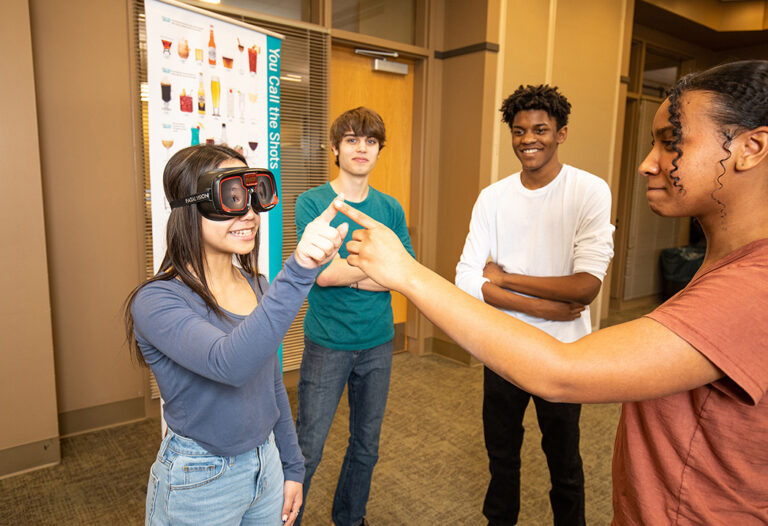In Ontario, California, reading isn’t only taught to area children. Three years ago, the Ontario Police Department was approved by the California Department of Alcoholic Beverage Control (ABC) to teach local alcohol beverage retailers to “READ,” too. The department is using Fatal Vision® Goggles to do it.
 READ, or Retail Education on Alcohol and Drugs, is an in-depth training program designed to teach ABC rules and regulations to the people who serve alcohol in retail establishments—bartenders, bouncers, clerks, security guards, and servers. Retail owners are eager to familiarize staff workers with ABC requirements, but there’s more to the READ program than that. Participants also gain insight into how to limit the retailer’s liability due to unsafe alcohol sales and service practices. Servers learn how to refuse sales to minors and intoxicated customers, as well as how to read identification and spot fraudulent IDs.
READ, or Retail Education on Alcohol and Drugs, is an in-depth training program designed to teach ABC rules and regulations to the people who serve alcohol in retail establishments—bartenders, bouncers, clerks, security guards, and servers. Retail owners are eager to familiarize staff workers with ABC requirements, but there’s more to the READ program than that. Participants also gain insight into how to limit the retailer’s liability due to unsafe alcohol sales and service practices. Servers learn how to refuse sales to minors and intoxicated customers, as well as how to read identification and spot fraudulent IDs.
Corporal Fred Alvarez is the department’s ABC Officer. He’s not only responsible for overseeing all ABC licenses, he’s also in charge of the READ program. He felt that the READ program was a good one but was missing one key experiential component.
“We needed activities to involve students,” he explains. “We wanted something to simulate intoxication.”
Luckily, Alvarez didn’t have to look far to find what he wanted. The Fatal Vision® Goggles were right there in his own department and had been since they were first manufactured. The Crime Prevention Department used them to educate junior high school and high school students. The Citizens Academy used them in alcohol awareness classes and at Crime Prevention fairs.
“I’d seen the goggles in use,” Alvarez says. “They connected with the needs of the class.” And once he started using them in the READ program, the goggles connected with the students, too.
Alvarez uses the goggles in a variety of settings to add that experiential dimension to READ classes. For instance, in one classroom setting, two students acted out a scene, one as a bartender and one as a customer.
Alvarez explains, “(With the goggles on) the customer struggles with simple physical tasks such as walking.” In this scenario, the bartender—and the other students—can readily see and identify signs of intoxication. The bartender then makes a “cocktail” (water) and serves it to the goggle-wearing patron, who attempts to take the drink back to a table. Along the way, the patron invariably spills his “drink” on another customer, “a sure-fire sign of intoxication.” It’s an important lesson for students to learn, since 68 percent of bar fights occur when one customer spills his drink on another.
Alvarez feels that some of the most effective classes import the above scenario right into bars and restaurants. “This is the best,” he says. “There’s nothing like having the setting right there in the bar. The servers are stunned.”
It also gives Alvarez a chance to teach bartenders and servers firsthand about the dangers of drinking on the job. He places the low impairment Fatal Vision® (White Label) Goggle on the student playing the bartender or server and a high impairment (Silver Label) goggle on the student playing the patron. Not only does the bartender have difficulty making drinks, but the student finds that being even mildly intoxicated keeps him from recognizing the signs of intoxication in the highly intoxicated patron. The bartender finds he has a hard time reading an ID and determining whether or not it’s fake, as well as smelling alcohol on the patron’s breath.
Alvarez finds that these simulation classes often lead to requests from participants for additional ones. For instance, Alvarez took the class to 1,500 employees of the San Bernadino Walmart and Sam’s Club. He’s been contacted by other Walmarts and Sam’s Clubs wanting to offer the training to their employees, too.
“They want more,” Alvarez says. “We hope to expand the program.” He’s hoping to take it into retail and convenience stores, too.
He credits the Fatal Vision® Goggles with making the READ program less of a lecture and more of a memorable real-life experience for the bartenders, servers, and other bar and restaurant staff. They have given the program exactly what Alvarez was searching for: activities that both simulate intoxication and involve students.
“The Fatal Vision® Goggles have a lot of different uses,” Alvarez concludes. “Everybody wants this training.”




 READ, or Retail Education on Alcohol and Drugs, is an in-depth training program designed to teach ABC rules and regulations to the people who serve alcohol in retail establishments—bartenders, bouncers, clerks, security guards, and servers. Retail owners are eager to familiarize staff workers with ABC requirements, but there’s more to the READ program than that. Participants also gain insight into how to limit the retailer’s liability due to unsafe alcohol sales and service practices. Servers learn how to refuse sales to minors and intoxicated customers, as well as how to read identification and spot fraudulent IDs.
READ, or Retail Education on Alcohol and Drugs, is an in-depth training program designed to teach ABC rules and regulations to the people who serve alcohol in retail establishments—bartenders, bouncers, clerks, security guards, and servers. Retail owners are eager to familiarize staff workers with ABC requirements, but there’s more to the READ program than that. Participants also gain insight into how to limit the retailer’s liability due to unsafe alcohol sales and service practices. Servers learn how to refuse sales to minors and intoxicated customers, as well as how to read identification and spot fraudulent IDs.
